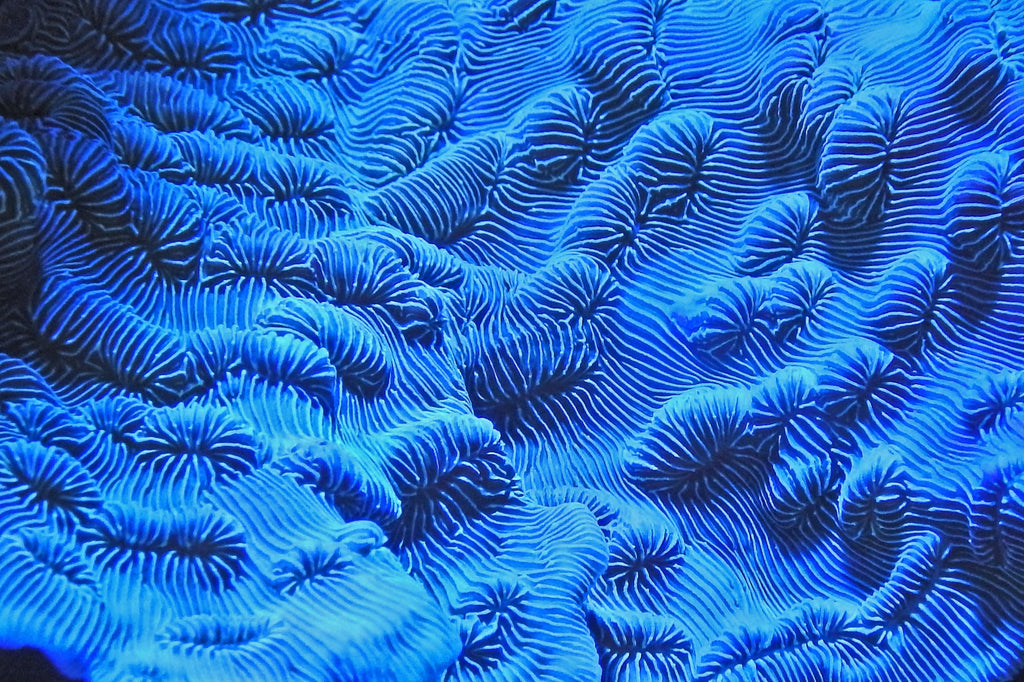I. Introduction
A. Presentation of the subject and its importance
Coral reefs are among the richest and most diverse ecosystems on our planet, with an incredible variety of animal and plant life.
They cover less than 0.1% of the ocean 's surface, but are home to nearly a quarter of all known marine species.
In addition to their intrinsic value as sources of biodiversity, coral reefs are also key players in regulating climate and water quality.
They protect coastlines from erosion and storms, provide essential habitats for fish and other marine animals, and provide important economic and cultural benefits for local communities that depend on fishing and tourism.
Despite their critical importance, coral reefs face many threats, including pollution, overfishing, unsustainable tourism, physical destruction and, most importantly, climate change.
For several decades, reductions in ocean pH and water temperatures have caused massive coral bleaching worldwide, leading to the death of many coral reefs and the destruction of their habitats.

Faced with these challenges, it is crucial to raise public awareness of the importance of coral reefs and their essential role in the health of our planet.
People need to be informed about the threats facing reefs and the actions they can take to protect them.
Therefore, this article aims to present the importance of coral reefs and the threats facing them, in order to increase public awareness of this crucial issue.
In the rest of this article, we will discuss in more detail the importance of coral reefs in the marine ecosystem, as well as the threats weighing on them.
We will also examine the measures taken to protect coral reefs, as well as the actions that each of us can take to contribute to their preservation.
Finally, we will conclude by emphasizing the urgency of protecting coral reefs to preserve marine biodiversity and the health of our planet.
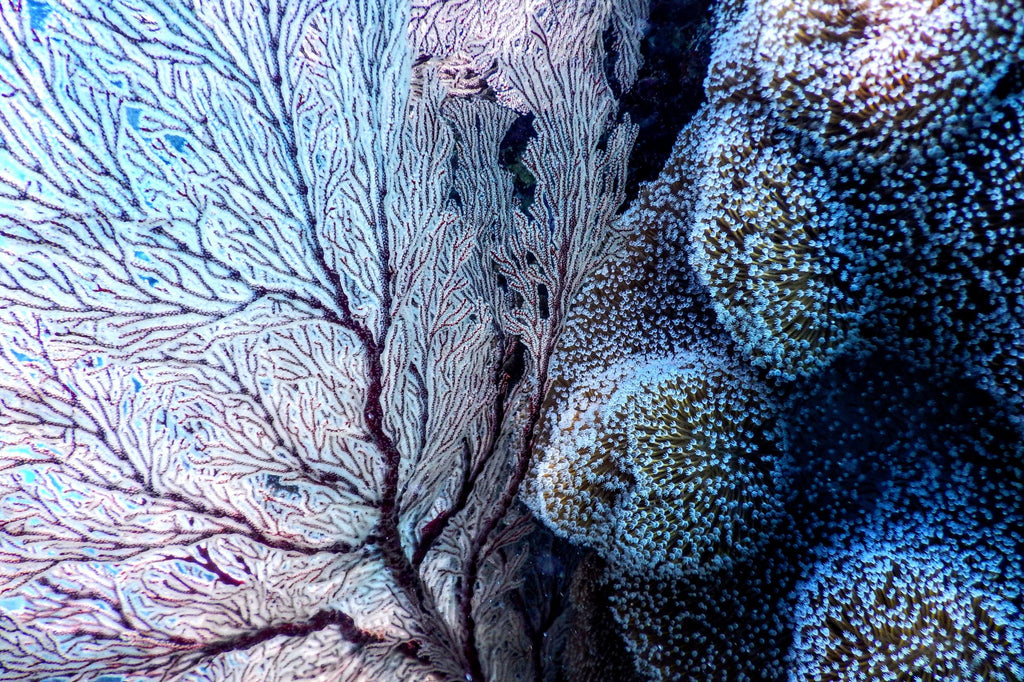
Summary
- I. Introduction
- A. Presentation of the subject and its importance
- II. Coral reefs
- A. What is a coral reef?
- B. The different types of coral reefs
- C. The importance of coral reefs in the marine ecosystem
- III. Threats to coral reefs
- A. Pollution
- B. Climate change
- C. Ocean acidification
- D. Overfishing
- E. Destructive tourism practices
- IV. The consequences of the disappearance of coral reefs
- A. Impact on the marine ecosystem
- B. Economic and social consequences
- V. Actions to protect coral reefs
- A. Coral reef protection initiatives around the world
- B. Actions to adopt to limit human impact on coral reefs
- VI. Conclusion
- A. Summary of the importance of coral reefs and the need to protect them
- B. Call to action for the protection of coral reefs.
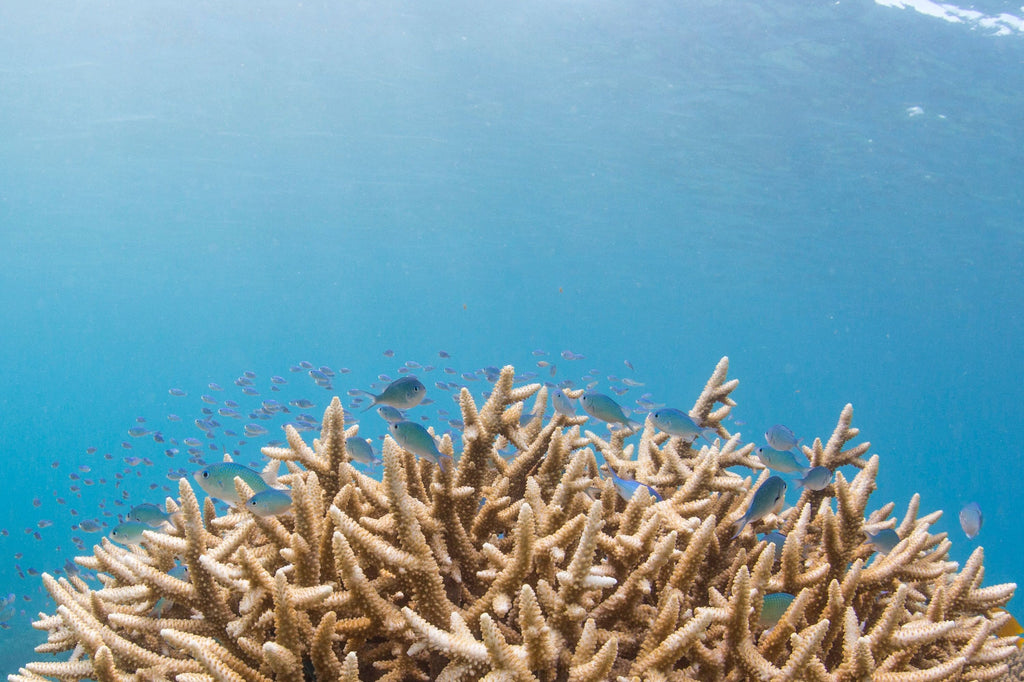
II. Coral reefs
A. What is a coral reef?
Coral reefs are complex and colorful underwater structures made up of thousands of marine animals called coral polyps.
These polyps have the ability to build calcium carbonate structures, which gradually develop into complex rock formations known as coral reefs.
B. The different types of coral reefs
There are three main types of coral reefs: fringing reefs, barrier reefs and atolls.
Fringing reefs are found close to shore, while barrier reefs are found a greater distance from the coast, separated by an area of deep water called a lagoon.
Atolls are circular formations of coral, surrounding a central lagoon area, which are often the result of collapsed underwater volcanoes.

C. The importance of coral reefs in the marine ecosystem
Coral reefs are essential to the marine ecosystem due to their high biodiversity and their important role in the food chain.
They are home to approximately 25% of known marine species, providing crucial habitat for a wide variety of fish, crustaceans, molluscs and other marine life.
Coral reefs are also an important source of food for coastal populations, providing protein and income for local fishing communities.
Additionally, coral reefs play a key role in protecting coastlines from storms, hurricanes and tsunamis by mitigating the impact of waves.
Despite their importance to the marine environment, coral reefs face many threats.
Human activities such as pollution, overfishing, mining, climate change and unregulated tourism all have negative impacts on coral reefs.
Overfishing can reduce populations of fish that naturally clean corals, while pollution can lead to algae blooms that smother corals.
Climate change is leading to ocean acidification and increased water temperatures, which damage corals and make them more vulnerable to disease.
Unregulated tourism can also lead to direct physical damage to corals, for example from tourist boats crushing them or divers damaging them.
In the next part of this article, we will take a closer look at the threats to coral reefs and their impact on the marine ecosystem.
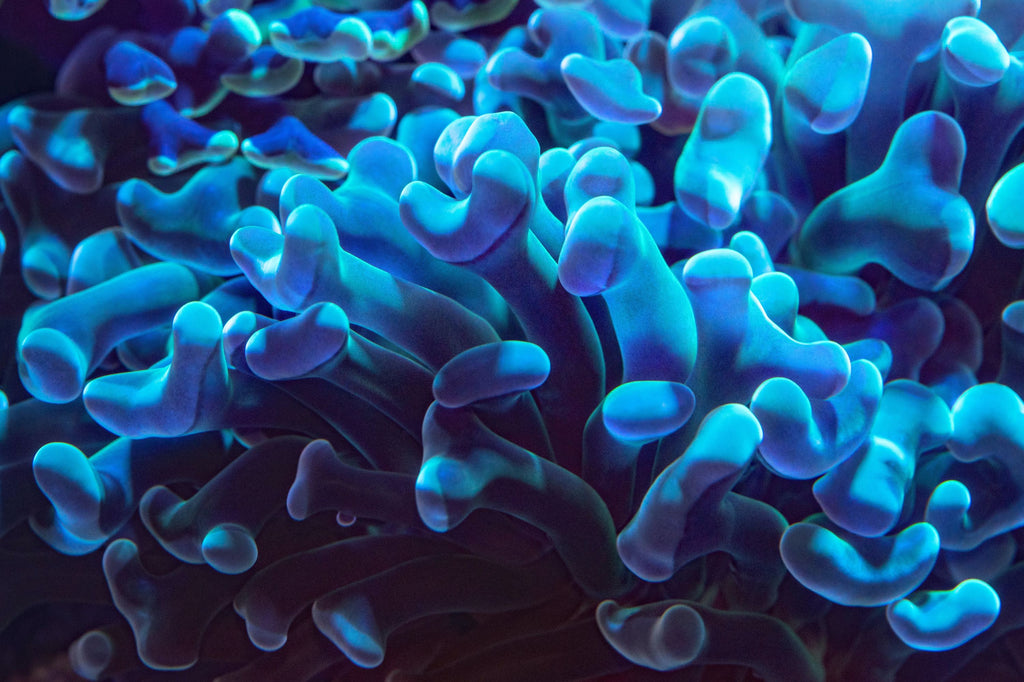
III. Threats to coral reefs
Coral reefs are currently facing numerous threats that jeopardize their existence.
Major threats include pollution, climate change, ocean acidification, overfishing and destructive tourism practices.
A. Pollution
Pollution is one of the main threats to coral reefs.
Human activities, such as agriculture, industry, shipping and coastal construction, result in the release of significant amounts of pollutants into the water.
Coral reefs are particularly vulnerable to pollution because they are located in densely populated coastal areas and exposed to human activities.
Pollutants can cause corals to die, reduce their growth, impair their reproduction and weaken their immune systems, making them more vulnerable to disease.
B. Climate change
Climate change is another major threat to coral reefs.
Greenhouse gas emissions, mainly from the use of fossil fuels, cause increased water temperatures and ocean acidification.
These two phenomena have devastating effects on coral reefs.
Indeed, an increase in water temperature can cause coral bleaching, that is to say the loss of their symbiotic algae, which considerably weakens their state of health.
In addition, ocean acidification can alter the formation of coral skeletons by reducing the availability of calcium carbonate, an essential element for their growth.
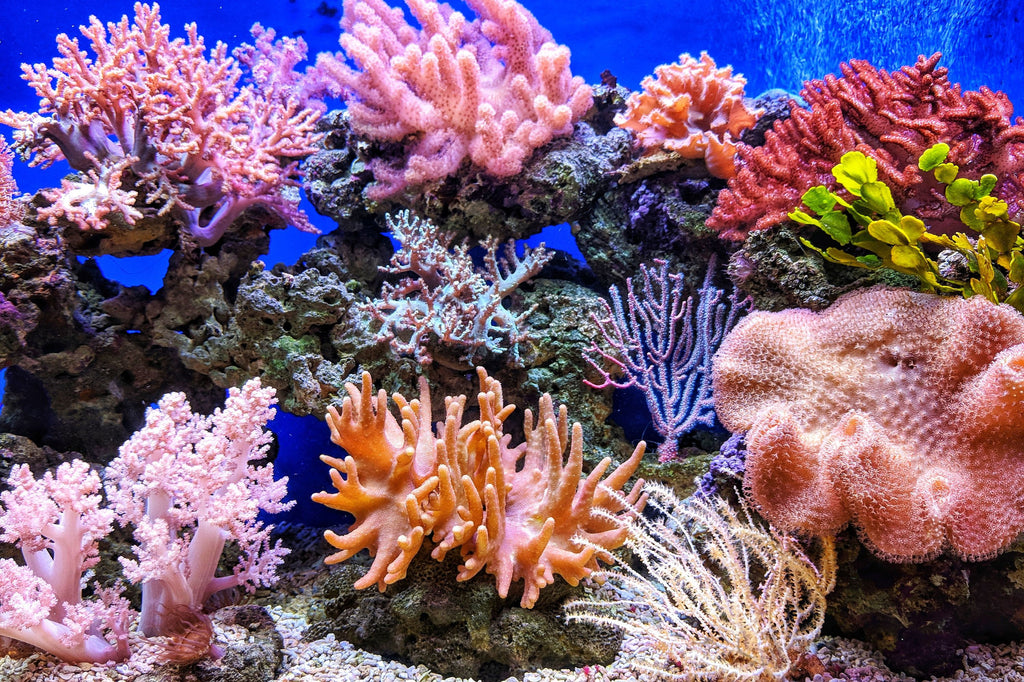
C. Ocean acidification
Ocean acidification is a direct consequence of the increase in CO2 levels in the atmosphere.
When CO2 is dissolved in seawater, it reacts with water to form carbonic acid.
This reaction lowers the pH of seawater and makes the water more acidic.
This acidification reduces the availability of calcium carbonate, which is used by corals to form their skeleton.
Ocean acidification can therefore lead to reduced coral growth, reduced resistance to disease and increased mortality.
D. Overfishing
Overfishing is another threat to coral reefs.
Destructive fishing practices, such as dynamite fishing, cyanide fishing and seining, have devastating effects on coral ecosystems.
Overfishing can also lead to a decrease in the diversity of fish species, which can disrupt the ecological balance of coral reefs.
E. Destructive tourism practices
Tourism can be a source of income for regions close to coral reefs.
However, destructive tourism practices can have negative effects on reefs.
Tourist activities such as snorkeling, fishing, underwater hiking and boat tours can damage coral reefs.
Activities such as anchoring boats, coral walking, and collecting shells and corals can also negatively impact reefs.
Additionally, the development of coastal tourism may lead to increased pollution of coastal waters due to increased visitor numbers.
Tourism infrastructure such as hotels, restaurants and ports can also have a negative impact on the marine environment .
Construction activities and wastewater discharges can affect water quality and damage coral reefs.
In short, destructive tourism practices can have serious consequences on coral reefs.
It is therefore important that tourism businesses and visitors adopt environmentally friendly practices to preserve the health of coral reefs and the marine ecosystem as a whole.
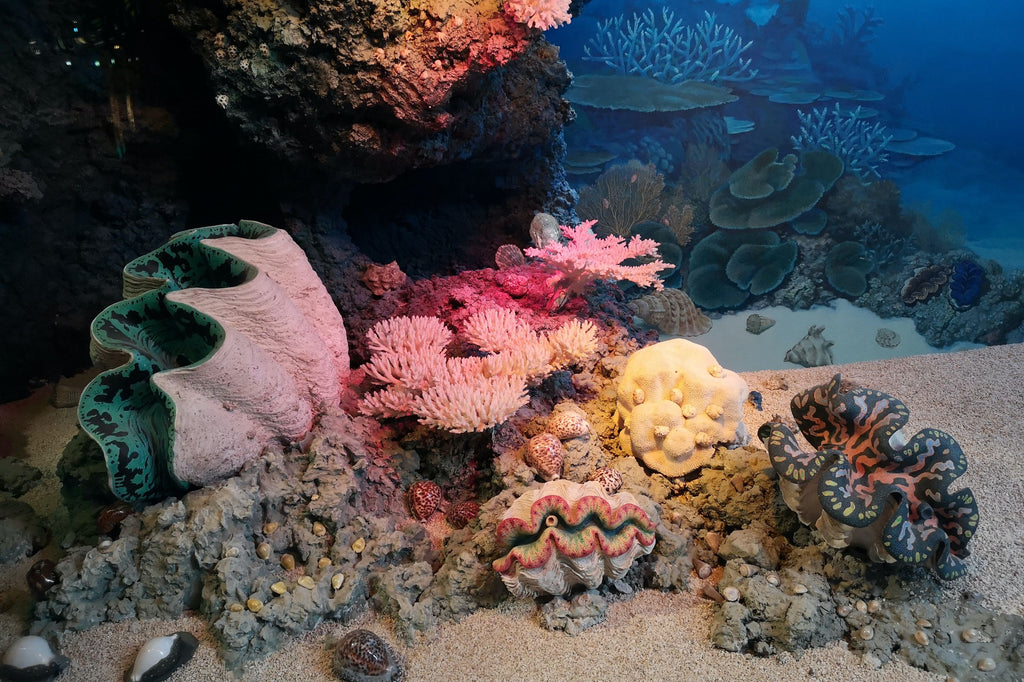
IV. The consequences of the disappearance of coral reefs
A. Impact on the marine ecosystem
The disappearance of coral reefs has a major impact on the marine ecosystem.
Coral reefs are important habitats for a wide variety of marine species, including many species of fish, invertebrates and marine mammals.
As such, coral reefs are often compared to tropical forests in terms of biodiversity and ecological value.
The loss of coral reefs means that the species that depend on them lose their habitat and are often unable to move to other suitable habitats.
This can lead to population decline and even extinction of some species.
Additionally, coral reefs also provide food and resources for coastal communities, which can lead to significant economic and social consequences.
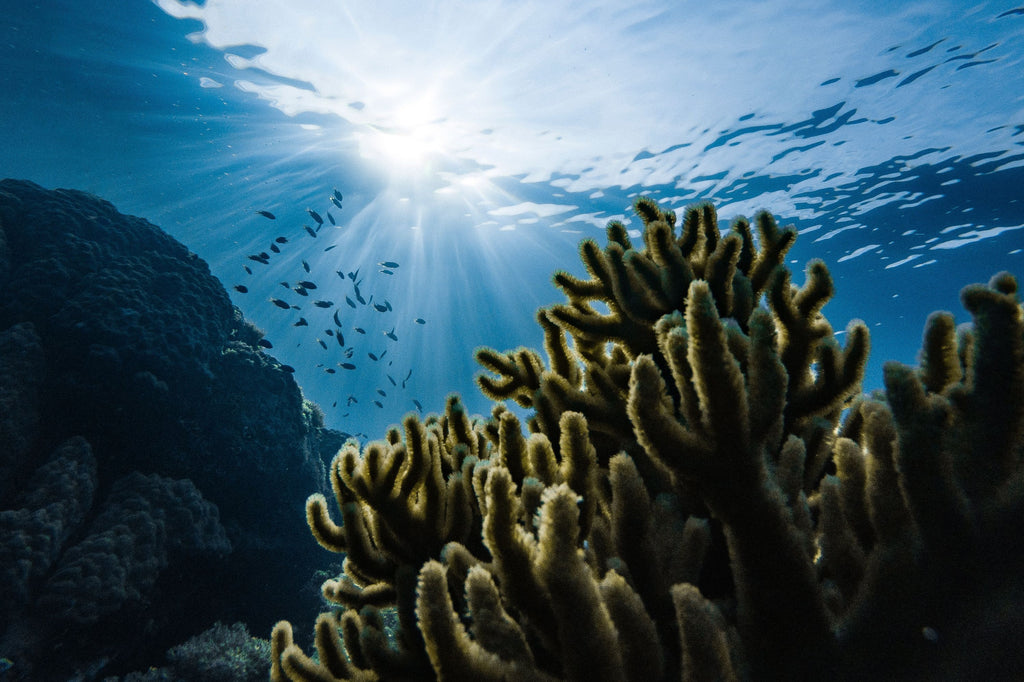
B. Economic and social consequences
The disappearance of coral reefs can have significant economic and social consequences.
Coral reefs are a major tourist attraction in many parts of the world, attracting millions of visitors each year.
Loss of coral reefs can lead to a decrease in tourism, which can have economic impacts on local communities that rely on tourism.
Additionally, coral reefs play an important role in protecting coastlines from storms and waves, which can reduce damage from natural disasters.
The loss of coral reefs can therefore lead to increased damage from natural disasters, which can have significant economic consequences for coastal communities.
Finally, the disappearance of coral reefs can also have consequences for the food security and livelihoods of coastal communities.
Coral reefs provide food and resources to many coastal communities, and their loss can lead to decreased food resources and increased poverty in these communities.
In short, the disappearance of coral reefs can have significant economic, social and environmental consequences.
The protection of coral reefs is therefore essential to preserve biodiversity, the livelihoods of coastal communities and marine ecosystems as a whole.
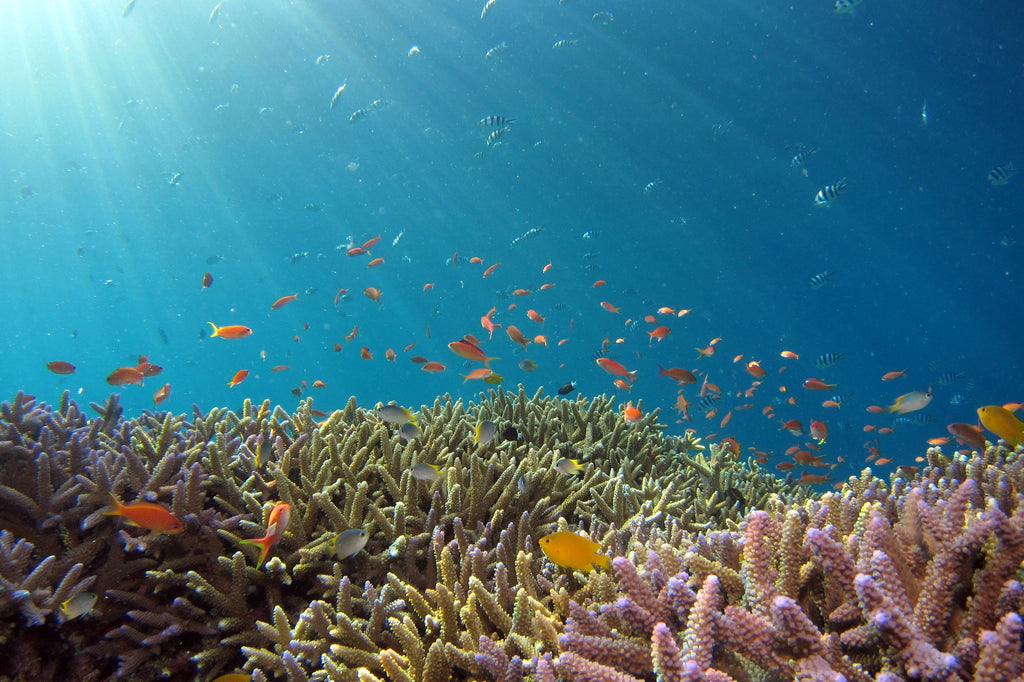
V. Actions to protect coral reefs
Coral reefs are today threatened by many human activities, but protection initiatives exist across the world to preserve these unique ecosystems essential to the survival of marine life.
A. Coral reef protection initiatives around the world
Many projects and initiatives have been put in place to protect coral reefs around the world.
Among these, we can cite the creation of marine parks and nature reserves, the establishment of reef surveillance and monitoring programs, the rehabilitation of damaged reefs, the implementation of sustainable fisheries management measures, as well as raising public awareness of the importance of preserving coral reefs.
Countries such as Australia, the Philippines, the Maldives and the United States have implemented coral reef protection programs, which have helped preserve these fragile ecosystems and reduce threats to them.
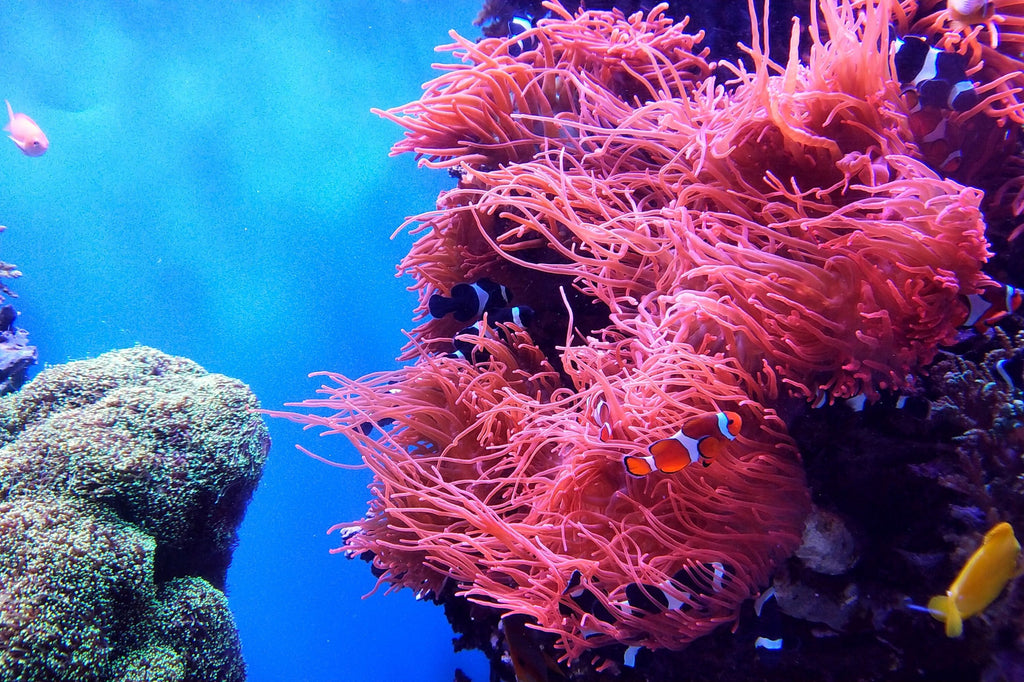
B. Actions to adopt to limit human impact on coral reefs
In addition to large-scale coral reef protection initiatives, everyone can also adopt simple actions to limit human impact on these marine ecosystems.
Limit pollution by avoiding throwing waste into the sea and using ecological products, reduce greenhouse gas emissions by favoring public transport or gentle modes of transport, avoid overfishing by only purchasing sustainable seafood products and respecting minimum catch sizes, as well as limiting destructive tourism practices by choosing environmentally friendly operators are all actions that can help preserve coral reefs.
Finally, raising awareness and participating in coral reef protection projects can also help preserve these unique ecosystems essential to the survival of marine life.
In short, coral reefs are marine ecosystems essential to marine life and humanity.
However, these ecosystems are today threatened by numerous human activities.
It is therefore essential to protect coral reefs by adopting eco-responsible actions on a daily basis and by participating in large-scale protection initiatives.

VI. Conclusion
A. Summary of the importance of coral reefs and the need to protect them
Coral reefs are incredibly important and diverse marine ecosystems that are home to a third of all known marine species.
These ecosystems are also vital to the health of the ocean and the planet as a whole, contributing to the production of oxygen, the protection of coastlines from erosion, the regulation of climate and the livelihood of millions of people. people.
However, coral reefs are threatened by a multitude of factors, including pollution, climate change, ocean acidification, overfishing and destructive tourism practices.
If nothing is done to protect these ecosystems, coral reefs could disappear completely by the end of the century.
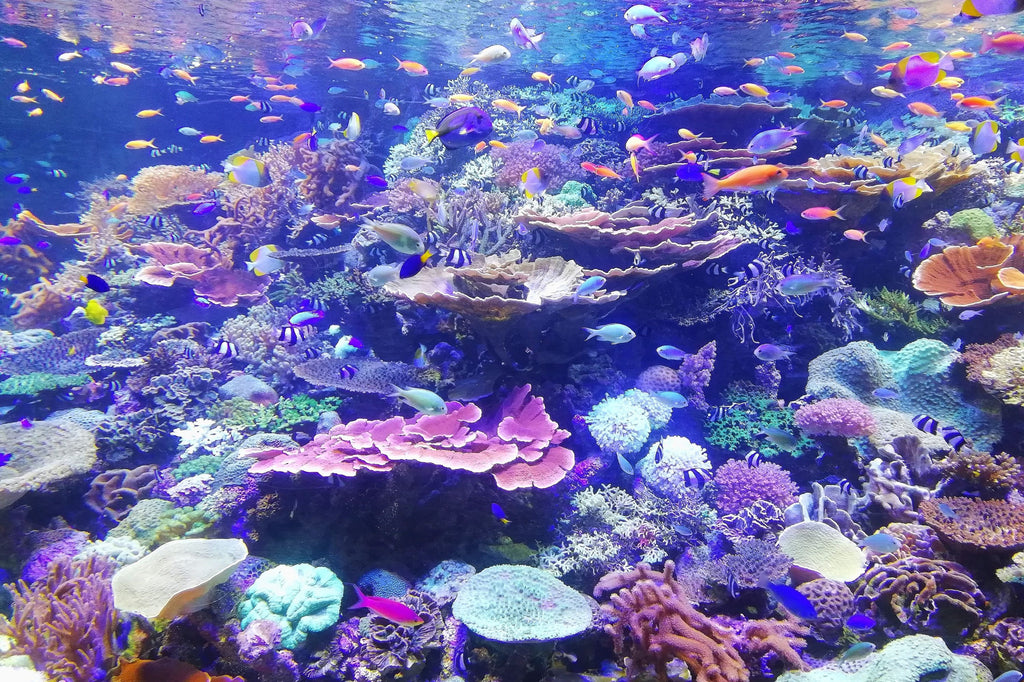
B. Call to action for the protection of coral reefs
It is essential to take action to protect coral reefs, including reducing pollution, combating climate change, regulating destructive fishing and tourism practices, and supporting coral reef conservation and restoration initiatives.
As consumers, we can also do our part by choosing sustainable seafood, reducing our carbon footprint and adopting eco-responsible behaviors, even when we are not by the sea.
It is time to act to protect coral reefs and preserve their incredible biodiversity and their vital contribution to the health of our planet.
Each of us can make a difference by acting responsibly and supporting coral reef protection and restoration initiatives.
